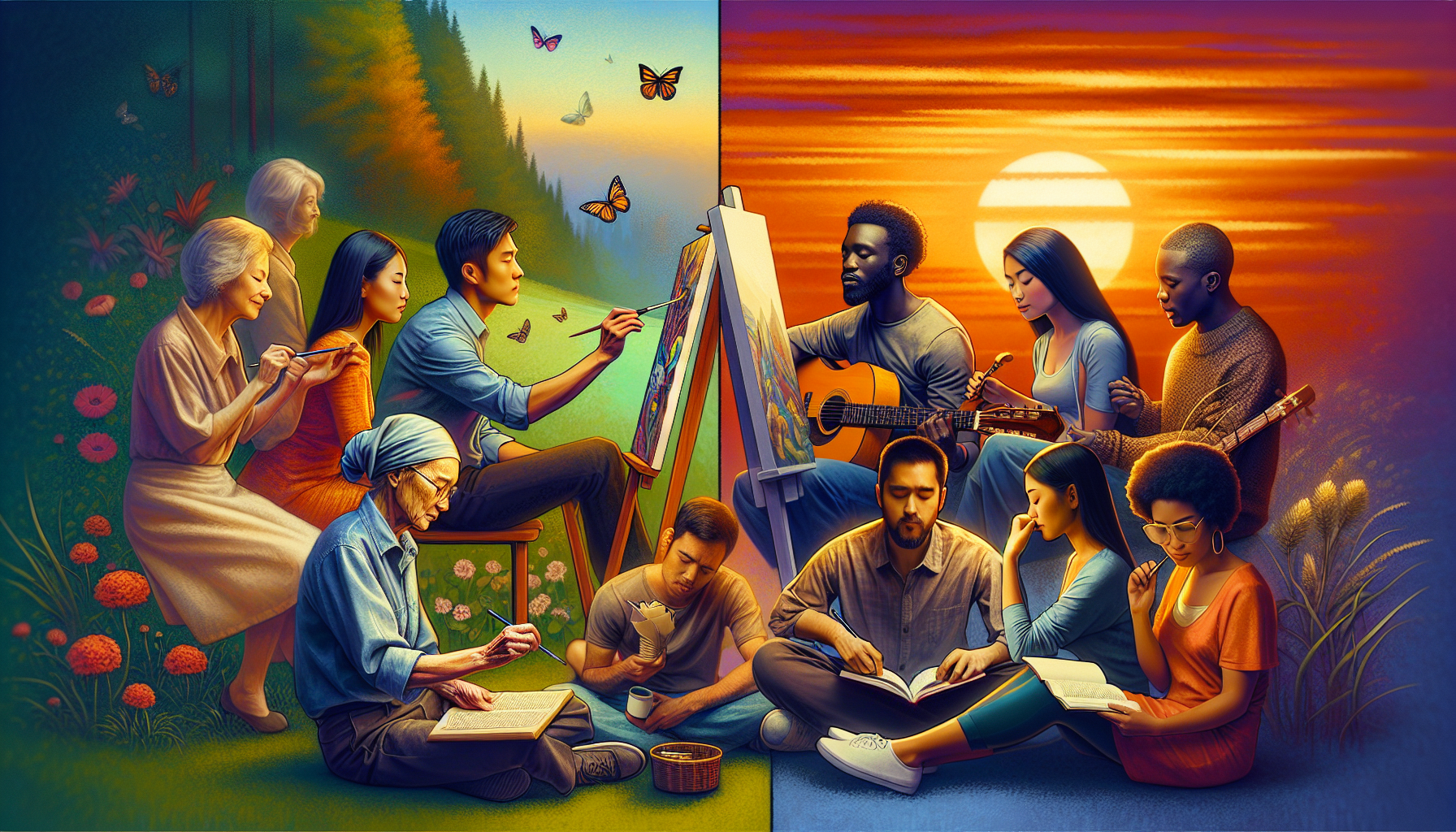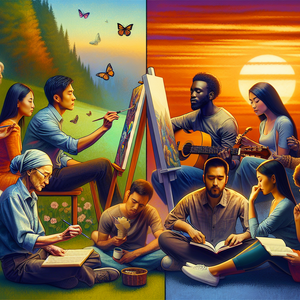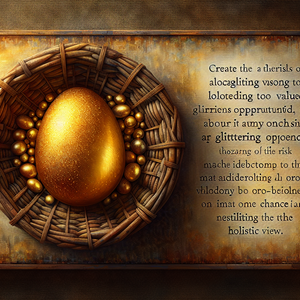The Future of VR and AR in Video Production: Insights from LA Pioneers

Virtual reality immerses viewers in a completely digital environment, allowing for an unparalleled level of engagement. In contrast, augmented reality overlays digital elements onto the real world, enhancing the viewer's perception of reality. Together, these technologies are changing the landscape of video production by offering filmmakers new tools to tell their stories. The potential applications are vast, ranging from gaming and entertainment to education and marketing. As VR and AR technologies become more accessible and affordable, the demand for high-quality content is surging. According to a report from MarketsandMarkets, the global AR and VR market in the media and entertainment sector is projected to grow from $1.2 billion in 2020 to $9.0 billion by 2025. This rapid growth indicates a significant shift in how audiences consume content and how creators approach storytelling.
Innovative Companies Leading the Charge
Los Angeles is home to several pioneering companies that are redefining video production through VR and AR. One of the standout players is The Virtual Reality Company (VRC), which has gained recognition for its groundbreaking work in VR storytelling. VRC’s projects, like "The Martian VR Experience," allow users to step into the shoes of characters and experience narratives in a fully immersive format. This project, based on the popular film "The Martian," lets viewers navigate the challenges faced by the protagonist, enhancing emotional connection and engagement. Their commitment to quality and innovation sets a benchmark for others in the industry. Another notable player is Within, a company that focuses on creating compelling VR content that blends entertainment with social impact. Their project "The Protectors" takes viewers on a journey through the lives of wildlife rangers who protect endangered species, effectively raising awareness about conservation issues through immersive storytelling. This project not only showcases the capabilities of VR but also highlights the potential for meaningful engagement with critical global issues. Apart from VRC and Within, other companies such as RYOT, Innerspace VR, and Secret Location are also making strides in the VR and AR landscape. RYOT, for instance, is known for its immersive journalism, which places viewers in the midst of global crises, fostering empathy and understanding. Innerspace VR focuses on creating captivating games and experiences that utilize VR's immersive qualities. Secret Location is notable for producing award-winning AR experiences, such as "The Walking Dead: Our World," which merges the real world with the iconic zombie universe.
Challenges and Opportunities
Despite the exciting possibilities, the integration of VR and AR in video production comes with its own set of challenges. One significant hurdle is the high cost associated with developing immersive content, which can deter smaller studios and independent creators. According to a study by PwC, the production costs for AR and VR content can be significantly higher than traditional video due to the need for specialized equipment and expertise. Additionally, the rapid pace of technological advancement means that companies must constantly adapt to new tools and platforms to stay relevant. The landscape is continually shifting, with new hardware and software emerging almost daily. However, these challenges also present opportunities. As more creators enter the VR and AR space, collaboration and innovation are likely to flourish. Companies can share resources and knowledge, leading to the development of more cost-effective solutions and a richer creative landscape. Furthermore, as the technology matures, the potential for monetization through VR and AR experiences will grow, attracting investment and interest from a wider range of stakeholders. The rise of platforms such as Oculus and HTC Vive is making it easier for creators to distribute their content and reach a global audience.
The Role of Storytelling in Immersive Experiences
At the heart of successful VR and AR content lies compelling storytelling. The immersive nature of these technologies allows creators to engage audiences on a deeper emotional level, making narratives more impactful. For instance, VR can simulate experiences that evoke empathy, such as walking in someone else's shoes. This capacity for emotional engagement positions VR and AR as powerful tools for not only entertainment but also education and social change. Prominent filmmakers and content creators emphasize the need for a strong narrative foundation when developing VR and AR projects. As Jessica Brillhart, a pioneer in VR storytelling, states, "It's not just about the technology; it's about how you use it to tell a story." This perspective underscores the importance of integrating traditional storytelling principles with cutting-edge technology to create experiences that resonate with audiences.
The future of video production in Los Angeles is being reshaped by the innovative integration of virtual reality and augmented reality. As companies push the boundaries of traditional storytelling, they are not only enhancing audience engagement but also exploring new avenues for creativity and expression. While challenges remain, the opportunities for collaboration, innovation, and meaningful storytelling are vast. As the industry continues to evolve, it’s clear that VR and AR are not just trends; they are the future of how we create and consume video content. With LA at the forefront of this transformation, the world eagerly awaits what the next wave of immersive experiences will bring.
VR Content Producer
The Virtual Reality Company, Within, RYOT
Core Responsibilities
Oversee the development and production of immersive VR experiences from concept to final delivery, ensuring adherence to narrative and technical standards.
Collaborate with writers, designers, and developers to create engaging storylines and user interactions that leverage VR technology.
Manage project timelines and budgets while coordinating with external vendors and partners as needed.
Required Skills
Strong understanding of VR platforms (e.g., Oculus, HTC Vive) and content creation tools (e.g., Unity, Unreal Engine).
Exceptional project management skills with experience in agile methodologies.
Proven ability to facilitate interdisciplinary collaboration among creative teams.
AR Experience Designer
Secret Location, Innerspace VR
Core Responsibilities
Design and prototype engaging augmented reality experiences that enhance user interaction with the environment and integrate seamlessly with real-world elements.
Conduct user research and testing to refine AR applications and ensure they meet audience needs and preferences.
Work closely with developers to translate design concepts into functional AR applications, ensuring usability and intuitive navigation.
Required Skills
Proficiency in AR development tools (e.g., ARKit, ARCore) and design software (e.g., Adobe Creative Suite, Sketch).
Strong understanding of user experience (UX) principles and the ability to create wireframes and user flows.
Experience with 3D modeling and animation is a plus.
Immersive Media Marketing Specialist
Marketing agencies specializing in digital and immersive media, film production companies, and tech firms
Core Responsibilities
Develop and implement marketing strategies specifically for VR and AR content, targeting both B2B and B2C audiences.
Analyze market trends and consumer behavior to identify opportunities for immersive media and recommend positioning strategies.
Collaborate with creative teams to produce promotional content that showcases the unique aspects of VR and AR experiences.
Required Skills
Strong background in digital marketing, with experience in social media, content marketing, and influencer partnerships.
Familiarity with analytics tools to measure the effectiveness of marketing campaigns and optimize accordingly.
Excellent communication and storytelling skills to effectively convey the value of immersive experiences.
VR Technical Artist
Game development studios, film production companies, and virtual reality content creators
Core Responsibilities
Bridge the gap between art and technology by optimizing 3D assets for real-time performance in VR applications.
Collaborate closely with designers and developers to ensure that visual elements meet artistic direction while adhering to technical constraints.
Create tools and workflows that enhance the efficiency of content creation for VR projects.
Required Skills
Proficient in 3D modeling software (e.g., Maya, Blender) and game engines (e.g., Unity, Unreal Engine).
Strong understanding of graphics principles, shader creation, and performance optimization techniques.
Ability to troubleshoot technical issues related to asset integration and real-time rendering.
Narrative Designer for Immersive Experiences
Video game companies, VR production studios, and companies specializing in immersive storytelling experiences
Core Responsibilities
Craft compelling narratives and character arcs that leverage the unique capabilities of VR and AR to enhance player or viewer engagement.
Collaborate with multidisciplinary teams to integrate storytelling elements into interactive experiences, ensuring a cohesive narrative flow.
Develop scripts, dialogue, and other narrative assets that resonate emotionally with audiences.
Required Skills
Strong writing and storytelling skills with a focus on interactive and immersive narratives.
Experience in game design and familiarity with narrative structure in non-linear storytelling.
Ability to adapt traditional storytelling techniques to fit the unique demands of immersive media.


